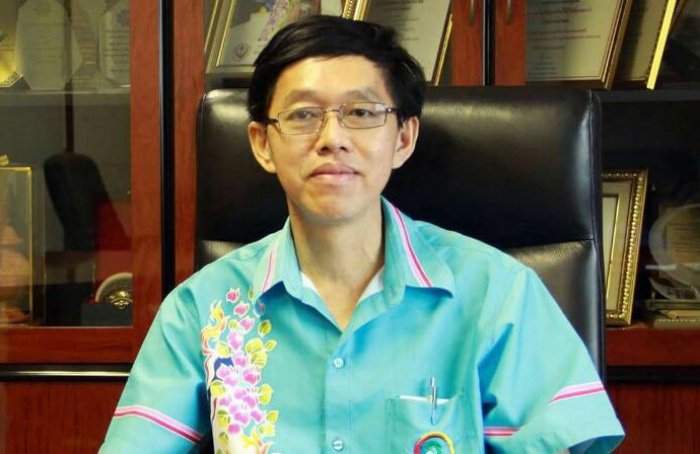First Person: Small hospital with big debt

Dr Sirichai Silpa-archa has been the director of Patong Hospital since 2013. Prior to becoming hospital director, he worked at Vachira Phuket Hospital for 26 years. He earned his medical degree from Chulalongkorn University, and later a specialist degree in urology from Chiang Mai University.
Here he talks about the trials and tribulations of managing a small, local hospital trying to accommodate the growing number of international patients in Phuket.
PHUKET: At Patong Hospital, 25 per cent of our patients are foreigners. Therefore, we need to set up a good management system to deal with these foreign patients.
I start with having qualified staff. Almost all of our staffers, from low to high rank, can communicate in English. We are ready and well prepared to communicate with tourists in English. Medical documents can also be issued in both Thai and English languages.
To improve our staff’s English, we have English lessons every Friday afternoon.
However, the problem is that not all tourists can speak English; for example, some Russian patients. We have faced big issues with this.
To deal with this problem, we have volunteer foreigners who can speak multiple languages, such as German, Russian, and many others to help our staffers interpret important information.
When our interpreters are not available, technology can help.
I advise all staffers to use technology to deal with this type of situation. Using translation devices, such as Google translate, to communicate with patients who cannot speak English, or using mobile phone applications to talk to each other is extremely helpful. Luckily, we rarely face this scenario.
We also focus on the ever-important insurance system. If we are weak in this, then we will have problems with our financial system as well.
Currently, we are in contact with about 50 insurance companies, including more than 20 western and European ones. The more contacts we have with insurance companies, the easier it is to deal with foreigners’ payments.
Patong Hospital has an annual debt of over one million baht, which is spent on taking care of foreigners who don’t have insurance and are unable to pay the hospital, especially for urgent cases where we have to provide treatment immediately.
It is the doctors’ code of ethics to provide life-saving measures and treatment to a patient, even before confirming whether they are able to pay for it. However, this has built a huge debt for us. To deal with this issue, we have tried asking for help from embassies; however, they generally say they have no funds to support this kind of issue.
Should a patient need surgery, the expense will be at least 100,000 baht. And on top of the hospital payment, some of the patients have no money to return home.
Or in more serious cases, if the patient dies, the hospital has to be responsible for their body and to provide a ceremony for them.
We have done a good job of contacting relatives through embassies. However, sometimes the relatives cannot afford the expense, which makes it a serious problem for us.
We have to solve the problem at the source. The problem starts when patients don’t have insurance. We would like to suggest that all tourists are made to take out an insurance policy before traveling, so that they do not face financial issues here.
Another option is to buy insurance here in Thailand. It doesn’t have to be health insurance; accident insurance would be enough.
We are now expanding our hospital to support more international patients. We only have 60 beds currently and we are planning to expand it to 120 beds next year.
The building is already finished, but we are still negotiating with the Ministry of Public Heath for more staff, such as nurses; otherwise, we cannot manage 120 beds.
Patong Hospital is just a small, local hospital, but we are ready and able to help service foreigners’ needs.
— Kongleaphy Keam
Latest Thailand News
Follow The Thaiger on Google News:


























